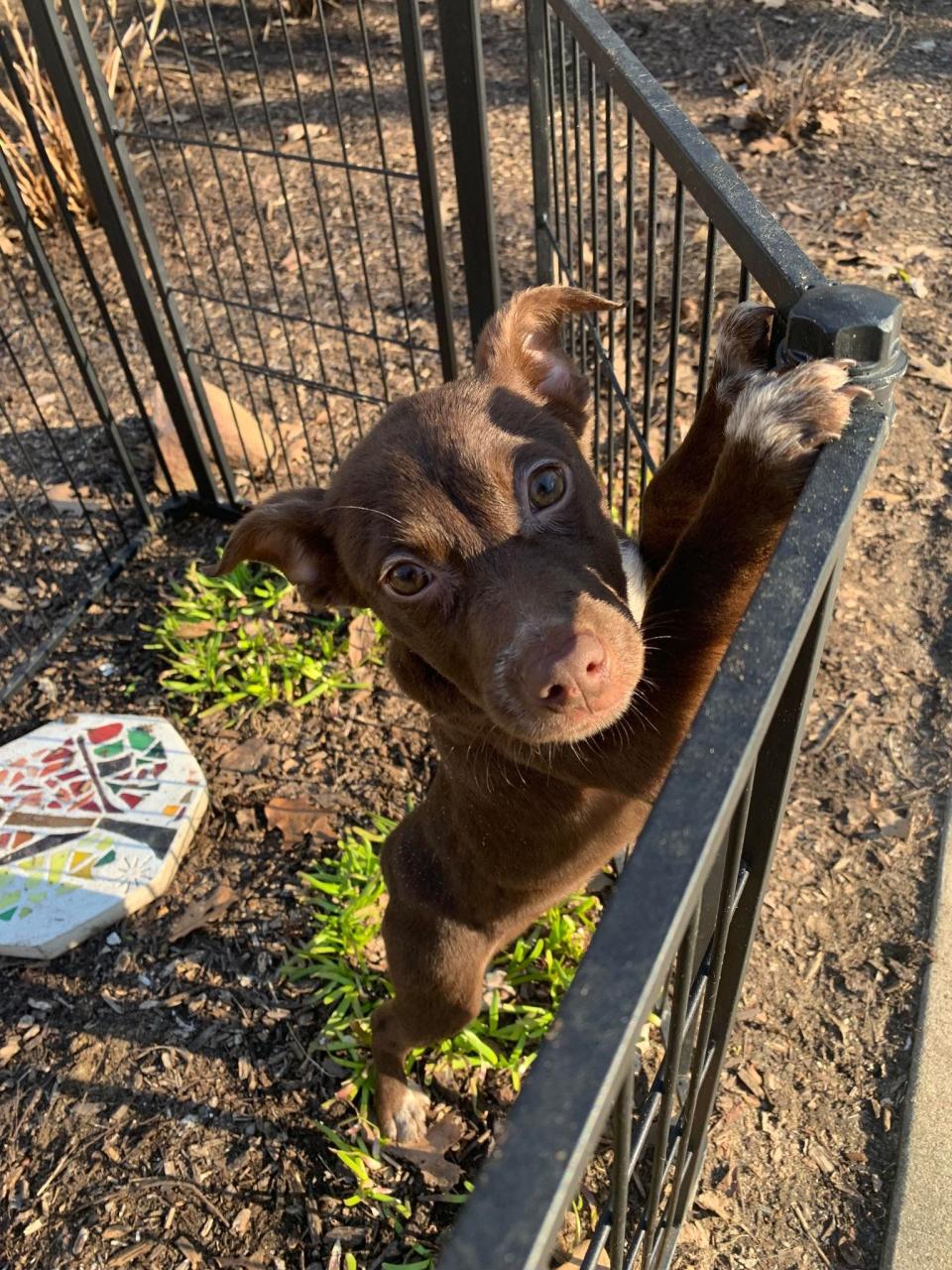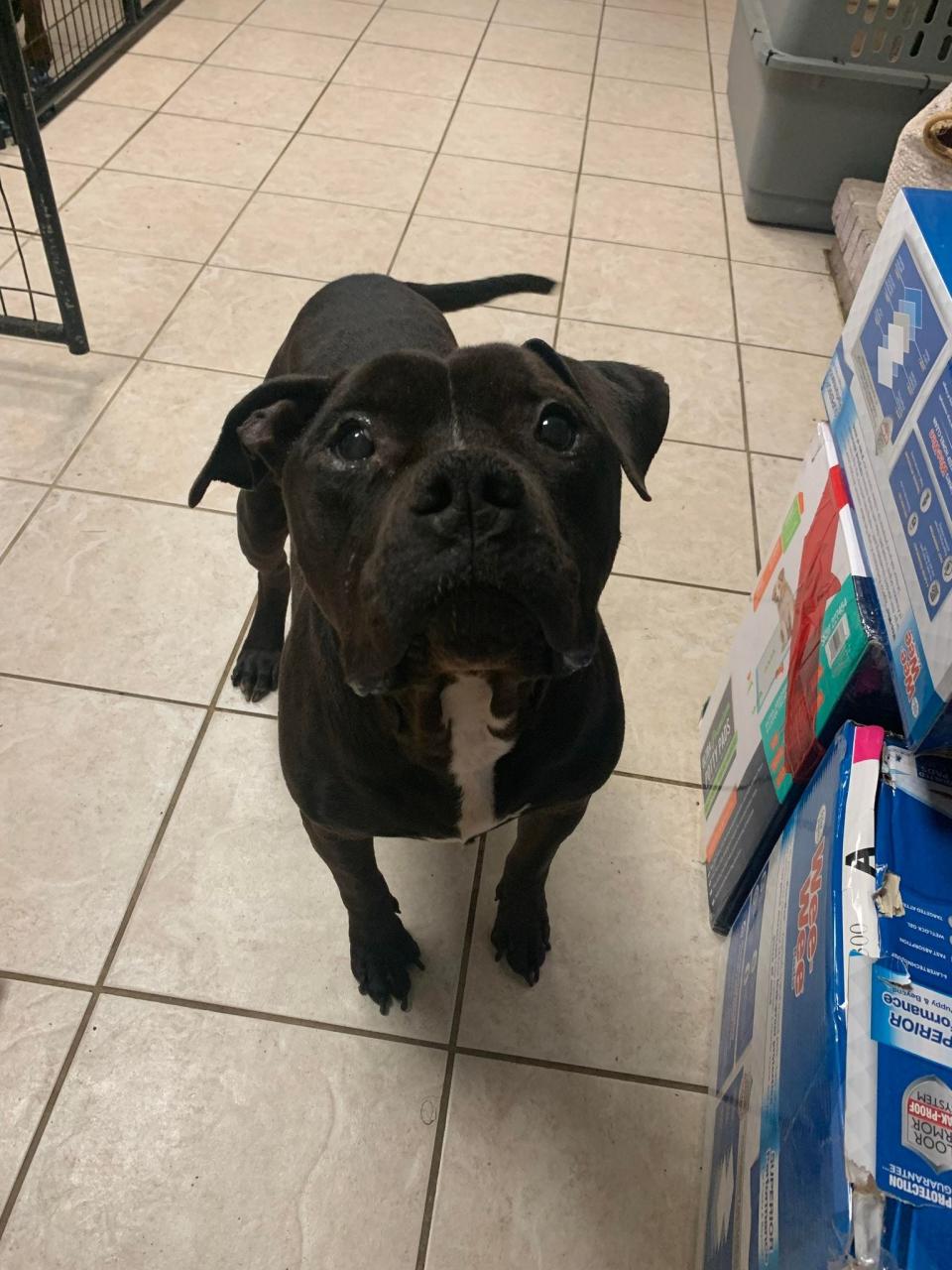Animal shelters report fewer adoptions, more surrenders as life goes 'back to normal'
When animal shelters were faced with sky-high application rates at the onset of the COVID-19 pandemic, hardly anyone knew how long the pandemic would last, or what would happen to newly adopted pets when life went "back to normal."
Now, they're finding out.

Plummeting adoption rates
Ashlynn Cluchey runs For The Sake of Being Humane, a dog rescue in Fennville. The shelter is about five years old, and experienced the same through-the-roof adoption rate as other organizations in 2020.
More: Furry friends improve mental health during pandemic
More: Harbor Humane highlights available resources after recent neglect cases
More: Cat-and-dog duo get their happy ending with official adoption
"It was insane," Cluchey said. "Everybody wanted a puppy, everybody wanted to bring a new dog into their family. We took in a lot more because we had more space, but now we're seeing those rates plummet. We've had maybe an adoption a week, at this point, and we have 58 dogs in our care."
Jennifer Self-Aulgur, executive director of Harbor Humane in West Olive, said these problems are nationwide.
"Nationwide, we're seeing a decrease in adoptions," she said. "I think a big part of it is, we're approaching the first summer where a lot of COVID restrictions have been lifted.
"People are taking trips, and don't think now is a good time to add a member to their family. There's also worries about the economy and inflation, and maybe a hesitation to add another mouth to feed."
Self-Aulgur said shelters in southern states, in general, struggle more than shelters in northern states.
"The majority of shelters in Michigan, minus Detroit, can handle their population and not get in a position where they have to euthanize for time and space," she said. "But southern states don't have the same adoption pool.
"There's too many animals and not enough people wanting them. There are shelters in Texas right now with literally 1,000-plus dogs. I've been in this business for 20 years, and these numbers are staggering."
As often as possible, shelters in the Midwest like Harbor Humane transport animals from southern states, saving them from euthanization.
"But when we're not moving animals as fast as we can, it creates a block in the system," Self-Aulgur said. "Those animals can't get moved up."
Even puppies, which normally "fly off the shelves," are going without "furever" homes.
"We have one litter of puppies that came in at six weeks old and went up for adoption at eight weeks," Cluchey said. "They're seven months old now. They're growing up here. They're still adoptable and super cute, and there's nothing wrong with them.
"We have other litters that were put up four weeks ago, and we've had maybe two adoptions. I'm having to say no to taking in dogs, and the backside of that is they end up on the streets or not being cared for properly."

'They're coming back'
In addition to falling adoption rates, Cluchey is starting to see pups adopted during the pandemic come back.
"They have behavioral issues because they weren't properly socialized during COVID, despite how much we drilled that into our adopters' heads," she said. "They're coming back because they've bitten people or they weren't responding well to family coming over. We always say we'll take dogs back, and we've had that happen 10 times this year."
The Cheboygan County Humane Society, in northern Michigan, is facing a similar problem — a significant increase in pet surrenders.
"Almost all of the dogs and cats that are being surrendered are not spayed or neutered and do not have any vaccinations," said Executive Director Mary Talaske. "They are poorly socialized and have some dangerous behavior issues."
The shelter has been operating at or over capacity for the last six months, due to the number of animals that have been surrendered, or picked up off the streets as strays.
Cluchey recommends working with a behavioral trainer before returning your pet to a shelter.
"At this point, the only thing that can correct that behavior is training and persistence," she said. "We always strongly recommend working with a trainer right after adoption, particularly because, right now, separation anxiety is one of the biggest issues we're seeing.
"Dogs that had family members home during COVID, they're not OK being left in the house. They're hurting themselves trying to get out, so people are turning to medications."
Little Traverse Bay Humane Society in Emmet County has found success with its own training programs, according to Communications and Marketing Coordinator Jessica Evans.
All dogs in the shelter go through the "Mutts with Manners" program, where they learn basic obedience. Once a dog has been adopted, new pet owners get a training scholarship they can use with the humane society trainer — or a regional partner — so the dog and owner can bond.
"We found that that really helps strengthen the owner/animal bond, and just kind of reinforces what we started with our training at the shelter," Evans said. "So, those are kind of a couple reasons I think we have maybe a little bit of a lower return rate."
At its location in Harbor Springs, Little Traverse Bay has about five acres of yard, where animals are placed into play groups and given the opportunity to run, socialize and expend energy.
"They have yard space, and I think that definitely helps," Evans said. "The old saying is true — an exercised, tired dog is a well-behaved dog, or a better-behaved dog anyway."

Vet shortages and rising prices
Self-Aulgur thinks families may also be struggling to afford healthcare expenses, as more small-town veterinary offices are purchased by national conglomerates.
"Sometimes, because of that, prices increase, and you have people having a harder time to afford those services," she said. "We definitely are seeing increased need in our low-cost services, whether that's our vaccine clinics or spay/neuter services."
Right now, new adopters are often stuck waiting four, five or six weeks for booster shots.
"Vets are overwhelmed," Self-Aulgur said. "There's not enough staffing. I think that's definitely creating an issue with getting animals proper care."
Dropping donations
To round out a trio of bad news, Cluchey is also seeing donations drop.
"In the past, we'd do a plea, saying we need dog food, we need help, and we'd have a basement of food by the end of the week," she said. "But now, we're getting a few bags. We have to keep doing pleas."
Cluchey recommends making a small monthly donation through programs like Patreon.
"You can donate as little as $3," she said. "And it comes out every month like a normal subscription. Those small donations add up, and that's what keeps our bills paid. It's a great program, and it's going to be our saving grace to get through an economic decline."
So far, Harbor Humane hasn't seen a significant decrease in donations — but time will tell, particularly as the organization's largest fundraiser of the year approaches.
For The Sake of Being Humane is open by appointment. Learn more at facebook.com/ForTheSakeRescueAndRehome.
— Contact reporters Cassandra Lybrink, Tess Ware and Kortny Hahn at newsroom@hollandsentinel.com.
This article originally appeared on The Holland Sentinel: Michigan animal shelters report fewer adoptions, more surrenders

